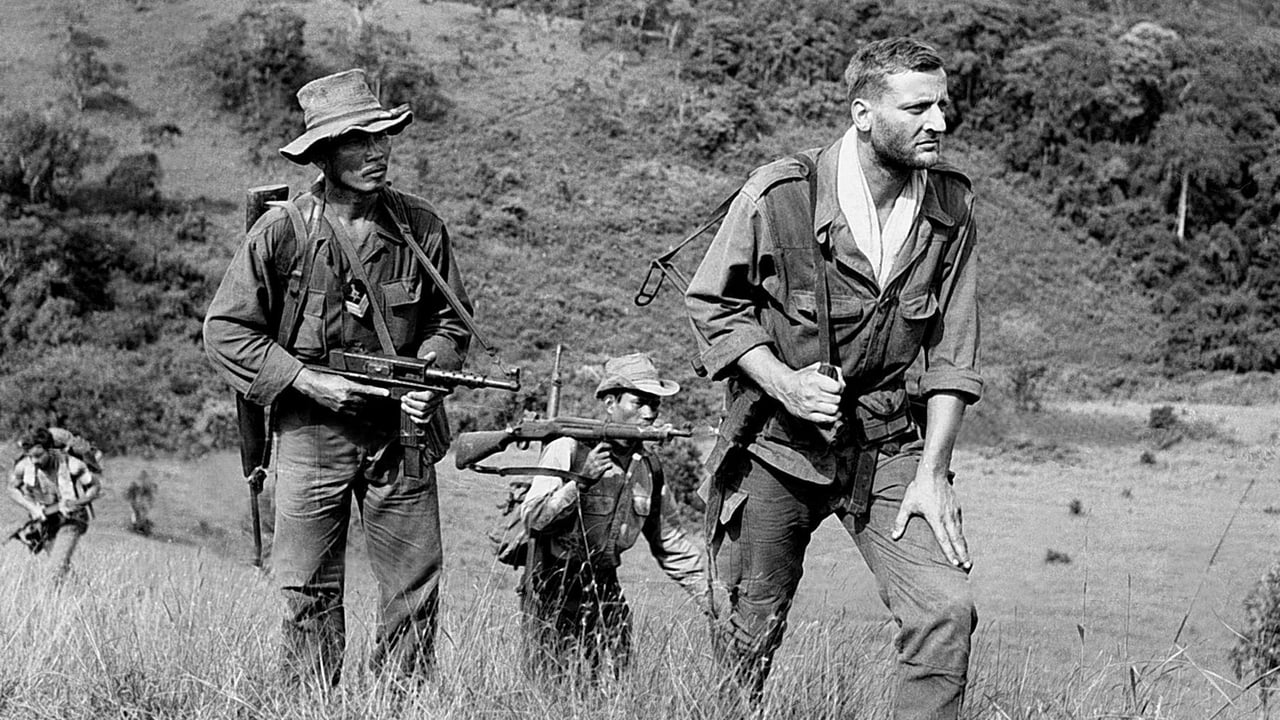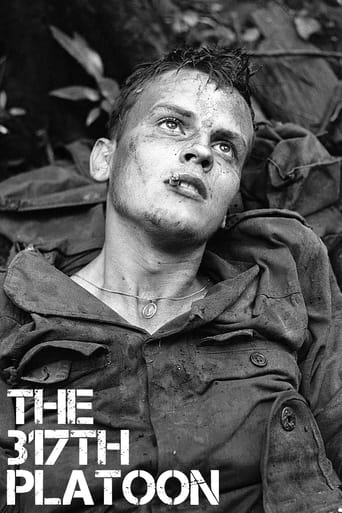Interesteg
What makes it different from others?
Maidexpl
Entertaining from beginning to end, it maintains the spirit of the franchise while establishing it's own seal with a fun cast
Plustown
A lot of perfectly good film show their cards early, establish a unique premise and let the audience explore a topic at a leisurely pace, without much in terms of surprise. this film is not one of those films.
Payno
I think this is a new genre that they're all sort of working their way through it and haven't got all the kinks worked out yet but it's a genre that works for me.
Theo Robertson
It has become very fashionable amongst uninformed opinion to mock the French military heritage . John A Nagi's best selling book Learning To Eat Soup With A Knife is a modern day bible of counter-insurgency warfare and chronicles the differences between America's failed conflict in Vietnam and Britain's spectacularly successful conflict against communist terrorists in Malaya in the 1950s . One of the major keys to British success was developing a French strategy learned in the Indo-China war of the ink spot strategy , a military counter-insurgency technique America dismissively ignored in Vietnam . That said there's different factors in winning and losing wars and when the British tried the Ink Spot strategy in Helmand province Afghanistan it was next to useless . Likewise the final outcome of the French Indo-China war was defeat for the colonial French after the pitched battle of Dien Bien Phu . But let it never be said that a bloody defeat requires less courage than a bloody victory and 317TH PLATOON tells of a bloody French defeat I came in to this film knowing absolutely nothing about it except was directed and written by Pierre Schoendoerffer who was present at the battle of Dien Bien Phu as a cameraman and in 1992 made the epic war film featuring the battle . In short what Schoenddoerffer doesn't know about the French Indo-China war isn't worth knowing and expected him to translate this to screen I was not disappointed . I've never seen a war but do know about the hot humid hell of monsoon in Asia and the director translates this very well to the audience where cloths are never dry and no matter how much liquid is consumed a thirst is never satisfied . Leeches and insects are always a problem and if a man suffers a small wound infection leading to gangrene is a threat . In this part of the world it's not only the enemy a White European has to fight but also the environment itself This helps to give a very real sense of time and place to the story that plotwise is very familiar to war film aficionados . The story itself is very simple of a platoon stuck behind enemy lines and having to fight their way to sanctuary . It does contain a very European film making style , one of cinema verite , of naturalistic light and sound recording and of choppy editing giving the audience a slightly disorientated feel but this in keeping with the film . If you're expecting the expressionistic nightmare of APOCAYLPSE NOW or the emotional roller-coaster of PLATOON then you'll be disappointed because that's not what 317TH PLATOON is trying to be but in its own way it's as effective as any Hollywood 'Nam epicA couple of things don't work . One is the audience might have to know the background of the conflict in order to understand why the platoon seemingly become stuck 150kilometres behind enemy lines . Another plot point is why the platoon have to open fire and give away their position to a passing Vietminh battalion when they could have laid low and bypassed it but these are minor flaws in a film that deserves to be better known about a counter-insurgency conflict that is totally forgotten . With Afghanistan being in the headlines for twelve years it might be a good idea to remember the quote from Marx that " History repeats itself first as tragedy , secondly as farce "
oOgiandujaOo_and_Eddy_Merckx
La 317ème section is a movie about a French/anti-communist platoon that gets separated whilst up country during the Vietminh offensive against Dien Bien Phu.The movie's two main advantages are that the director was an ex-combatant in that war, and Raoul Coutard, who was one of the great New Wave cinematographers.The story concerns a green lieutenant, Torrens, thirsty for battle, brave and intelligent, though seemingly an adventurer from another century, and his seasoned adjutant Willsdorf, Alsatian Wehrmacht veteran. Many other films have used this formula, a classic principal-agent problem that genuinely occurs in conflicts, but used it as a metaphor for classism, and exaggerated matters.If you look at Hollywood treatments of either the Korean War or the Vietnam War, particularly around this era, you genuinely see that there is absolutely no understanding of the naturalised inhabitants of the country. Even where there is good will, these productions remain opaque. Willsdorf however genuinely seems to have a feel for the people and how they live. He senses a more poetical way of living, which he respects, but which is clearly ripe for exploitation. There's a piece of dialogue where he mentions how the trees of the forest will soon turn red for Autumn, and that when they do the locals will drink, dance, make love and celebrate, and you sense part of him wants to join with that, wants to find a nook in a river bend where he can set up house.What these individuals are though, as literally shown in the opening credits, are soldier ants in the forest, their lives are expendable. They are men who live in a man's world without the comforts of home, and take their pleasures where they may, they can only hope to do their duty and lay down and die, and may as well embrace what they do and who they are. It's not a "war is madness" movie, but it is terribly sad, and I was just sorry for Willsdorf that he wasn't sipping a nice Riesling back home after tucking his children into bed. It seems that by being totally apolitical the film manages to leave room for you to come to the conclusion that imperialism is deeply aberrant.
Rave-Reviewer
In 1954 Vietnam, at the time of Diên Biên Phu, a French unit on patrol under the command of an inexperienced lieutenant is gradually depleted by Vietminh until only an ex-Wehrmacht Alsatian adjutant remains. He is to die, a title informs us, in Algeria in 1960.Semi-documentary in style, this is an effectively low-key appraisal of the difficult choices with which war confronts its soldiers. As so often in Vietnam films the enemy is only glimpsed from a distance, the camera remaining a disembodied observer among the group. Bertrand Tavernier acted as co-writer on the film.
J.P.-7
America made many movies about the Viet Nam war, good ones and bad ones. On the contrary, France didn't make films about the Indochina and Algeria wars. But "la 317e" is not only rare because of this, but also because it shows war as it was really fought, not by Rambo-like superheroes, but by simple men, some courageous, some not... Besides, Shloendorffer is a great film maker, and you can feel during the film that hes was really there, that he shared tragic hours with these men.

